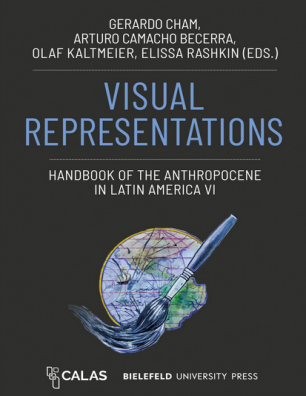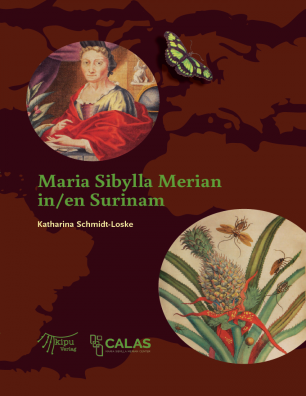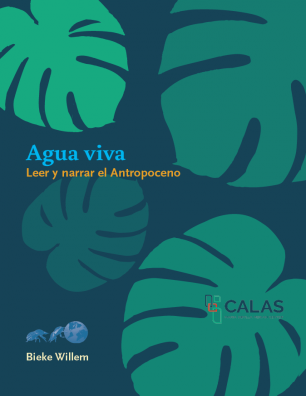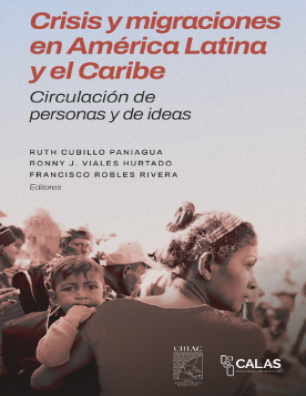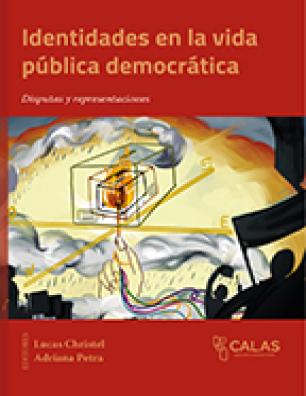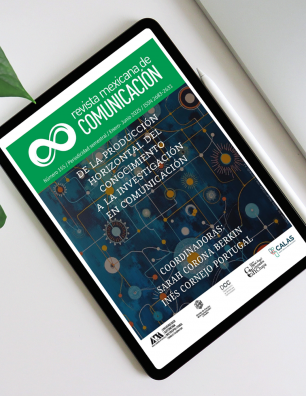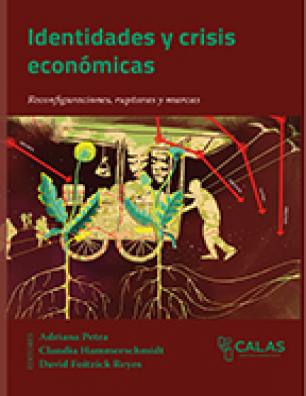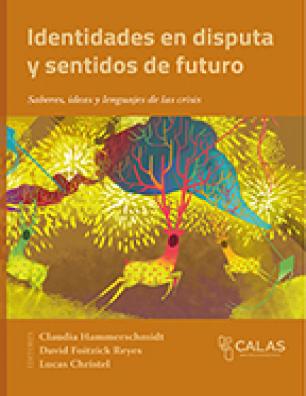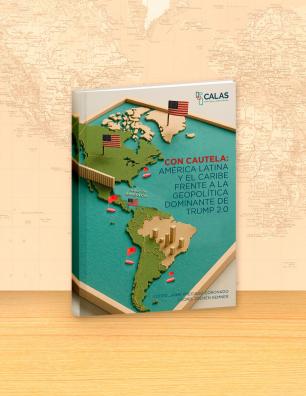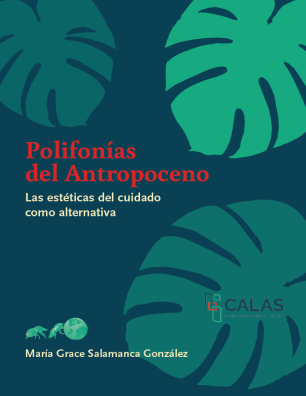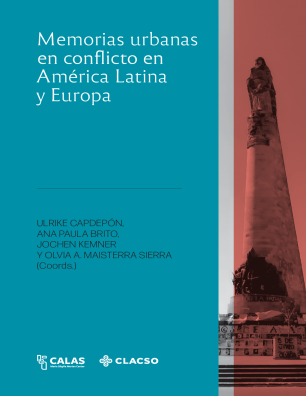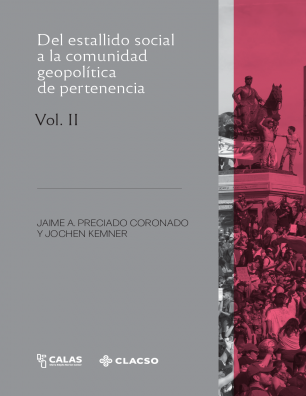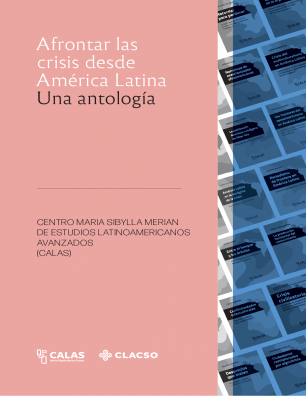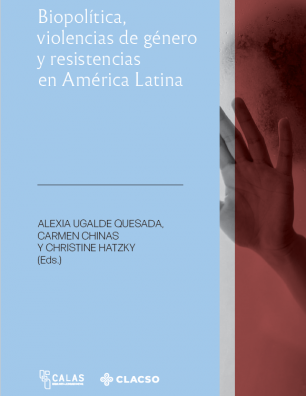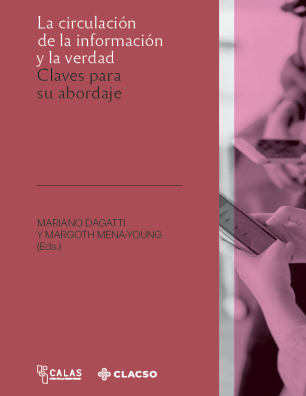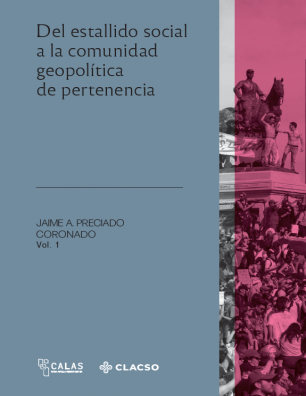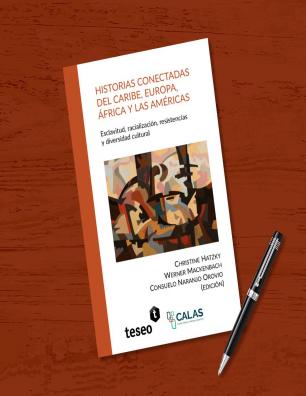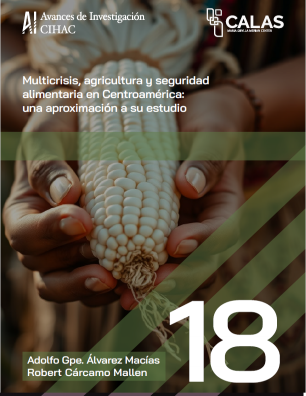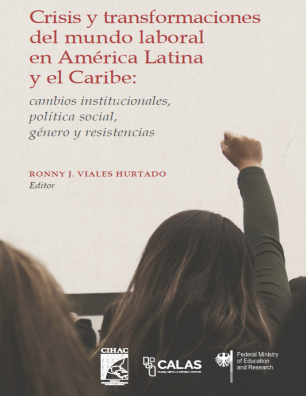Libros y revistas
Otros
Visual Representations Handbook of the Anthropocene in Latin America VI
Throughout the history of the Americas, sentiments toward the environment have been problematized and aestheticized through visual representations in various formats. In this volume of the Handbook »The Anthropocene as Multiple Crisis«, sixty entries examine the crises of mining, energy, land use, biodiversity, water, and climate change in the major macro-regions of Latin America from the colonial period to the contemporary era of the Anthropocene, featuring iconic images from this context.
Katharina Schmidt-Loske. Maria Sibylla Merian en Surinam
María Sibylla Merian (1647-1717) no solo fue una destacada artista de su época, experta en dibujo, pintura, grabado y aguafuerte. También sentía pasión por el estudio de los fenómenos biológicos, como las plantas de las que se alimentan las orugas y la metamorfosis de las mariposas. Las etapas de su vida la llevaron de Fráncfort a Núremberg y Frisia Occidental, y finalmente a Ámsterdam. En 1699, a los 52 años, partió de Holanda hacia Surinam, en Sudamérica, para realizar un viaje de investigación.
Bieke Willem: Agua viva. Leer y narrar el Antropoceno
Leer literatura es necesario para hacer frente a las múltiples crisis del Antropoceno. Leer con detenimiento, tomarse tiempo para acercarse a las palabras, es mucho más que una forma de resistencia política frente a las ideas de progreso y aceleración inherentes al sistema mundial capitalista responsable de estas crisis. Este ensayo presenta una lectura atenta de novelas y cuentos hispanoamericanos que narran la estrecha relación entre el ser humano y „la naturaleza“ en el contexto del Antropoceno.
Crisis y migraciones en América Latina y el Caribe. Circulación de personas y de ideas
Las migraciones latinoamericanas y caribeñas han dejado de ser un fenómeno unidireccional hacia Estados Unidos para convertirse en una experiencia global, compleja y multiescalar, vinculada con crisis contemporáneas que se refuerzan entre sí: desigualdades, cambio climático, conflictos, pandemias y transformaciones tecnológicas. Este libro explora las causas, implicaciones y tensiones de estas movilidades, considerando los factores estructurales, institucionales, ambientales y culturales que las atraviesan, así como sus dimensiones de género, etnia y clase.
Identidades en la vida pública democrática. Disputas y representaciones
En América Latina, el siglo XXI ha transformado radicalmente la política: los partidos tradicionales pierden fuerza, surgen liderazgos personalistas y movimientos sociales demandan mayor representación. Identidades en la vida pública democrática explora esas tensiones y analiza cómo la desconfianza en las instituciones abre paso a nuevas formas de participación, pero también a discursos polarizantes. ¿Cómo construyen legitimidad los gobiernos en tiempos de incertidumbre? ¿De qué manera grupos históricamente marginados –como pueblos originarios o trabajadores informales– logran visibilidad?
Revista Mexicana de Comunicación n°155 | De la Producción Horizontal del Conocimiento a la investigación en comunicación
La Revista Mexicana de Comunicación y CALAS Center colaboraron para la edición y publicación del número 155. Es coordinado por Sarah Corona Berkin, fundadora de la Red de Producción Horizontal del Conocimiento del CALAS y ex-directora del mismo centro, e Inés Cornejo, miembro de la Red y referente en las prácticas de escritura creativa horizontales.
Identidades estratégicas en los pueblos indígenas. Narrativas, producciones y representaciones
En un contexto de neoliberalismo exacerbado, las ampliaciones de derechos y de reconocimiento de las identidades indígenas en América Latina/Abya Yala se combinan de modos muy complejos con nuevas formas de exclusión socioeconómica y simbólica. Este volumen analiza las resistencias a una homogeneización global de las diferencias e indaga cómo las distintas matrices hegemónicas contrastan y se confrontan con la emergencia de identidades estratégicas indígenas.
Identidades y crisis económicas. Reconfiguraciones, rupturas y marcas
¿Cómo influyen las crisis económicas en las identidades de los sectores vulnerables de América Latina? ¿De qué manera emergen las luchas sociales como respuestas a estas crisis? ¿Qué papel juegan la informalidad y la precariedad laboral en la construcción de nuevas identidades? ¿Cómo pueden las experiencias de Cuba y Chile ofrecer lecciones para enfrentar las crisis actuales en la región?
Identidades en disputa y sentidos de futuro. Saberes, ideas y lenguajes de las crisis
Abordar las disputas identitarias en América Latina/Abya Yala durante los siglos XX y XXI no solo es complejo, sino que plantea interrogantes fundamentales. ¿No serán identidad y crisis nociones que se implican mutuamente? ¿Acaso la identidad no es un concepto inherentemente dinámico y fluido, en constante (re) construcción? ¿Qué nuevos sentidos se le da hoy en día a esta noción? ¿Hasta qué punto emergen y se consideran identidades tradicionalmente invisibilizadas (como las indígenas) o no consideradas tales (como las no-humanas: las plantas, los animales, o los territorios)?
Con cautela: América Latina y el Caribe frente a la geopolítica dominante de Trump 2.0
En el marco de las transformaciones globales que definen el primer cuarto del siglo XXI, el segundo mandato de Donald Trump ha reconfigurado el escenario geopolítico, desafiando el orden internacional liberal y promoviendo una agenda basada en el nacionalismo del "America First".
María Grace Salamanca González. Polifonías del Antropoceno Las estéticas del cuidado como alternativa
Es urgente reflexionar sobre las crisis. La racionalidad moderna no ha sido suficiente para cambiar el comportamiento y las políticas del sistema mundial moderno, colonial, capitalista y patriarcal. Las crisis del Antropoceno son de naturaleza ecológica, biológica, sanitaria, política, económica, antropológica, ética y estética. Este ensayo se basa en una serie de talleres con diferentes colectivos sobre «La estética del cuidado del Antropoceno», realizados entre diciembre de 2022 y febrero de 2023, principalmente en el área metropolitana de Guadalajara (México).
Colección CALAS / CLACSO
Memorias urbanas en conflicto en América Latina y Europa
El libro Memorias urbanas en conflicto en América Latina y Europa explora las complejas y a menudo contenciosas formas en que los espacios urbanos se convierten en sitios de memoria, enfocándose en la resignificación y las disputas sobre pasados traumáticos. Destaca cómo las ciudades, en tanto densas redes de capas mnemónicas, están en constante transformación y se correlacionan con condiciones políticas, económicas y culturales.
Del estallido social a la comunidad geopolítica de pertinencia, volumen II
En este segundo volumen del estudio sobre los estallidos sociales que sacudieron a América Latina y el Caribe a partir de 2019, se reflexiona sobre su impacto contemporáneo y se actualizan, hasta 2024, los alcances, limitaciones y obstáculos de los procesos democratizadores que emergieron en cada uno de los siete casos analizados: Bolivia, Chile, Colombia, Ecuador, Haití, Puerto Rico y las caravanas migrantes.
Afrontar las crisis desde América Latina. Una antología
Este libro ofrece una compilación esencial de reflexiones desde la investigación interdisciplinaria del Centro Maria Sibylla Merian de Estudios Latinoamericanos Avanzados (CALAS).
Aborda la noción de crisis como un eje central para analizar los complejos procesos de cambio social en América Latina.
Biopolítica, violencias de género y resistencias en América Latina
Aunque los contextos y las biotecnologías han cambiado en las últimas décadas, los mecanismos y los objetivos de la biopolítica siguen siendo similares; por ejemplo, el descarte, la marginación y la exclusión continúan presentes como formas de muerte social. Los textos recogidos en este libro abordan estrategias para enfrentar las políticas de intervención sobre los cuerpos, superar la necropolítica y luchar por la vida.
La circulación de la información y la verdad. Claves para su abordaje
En un mundo atravesado por la aceleración digital, la circulación de la información enfrenta desafíos inéditos. Este libro colectivo indaga en las tensiones entre verdad, desinformación y democracia, desde una mirada crítica y situada en América Latina. A partir de conceptos clave como credibilidad, verificación, polarización, algoritmos y educación mediática, autoras y autores analizan cómo se construyen, filtran y consumen las noticias en un entorno marcado por el desorden informativo.
Del estallido social a la comunidad geopolítica de pertenencia, vol. I
Este libro es una travesía crítica por los estallidos sociales que sacudieron América Latina y el Caribe entre 2019 y 2023. A través de una mirada rigurosa y comprometida, Jaime A. Preciado explora cómo estas revueltas populares no solo confrontaron al poder instituido, sino que también gestaron comunidades políticas de pertenencia que recon!guran el mapa político regional. Desde Bolivia hasta Puerto Rico, pasando por las caravanas migrantes, se examina el tránsito desde la protesta al proyecto colectivo.
Colección CALAS / Teseo
Historias conectadas del Caribe, Europa, África y las Américas
Este libro explora el Caribe como un espacio geopolítico vertebrado donde los contactos económicos, políticos, sociales, culturales y humanos fluyen de una isla a otra hacia el continente americano y, a través del Atlántico, hacia Europa y hacia África. Esta historia entrelazada ha generado modelos económicos, sociales y urbanos, así como prácticas, dispositivos ideológicos y rechazos en ambos lados del Atlántico.
Avances de Investigación CALAS / CIHAC
Multicrisis, agricultura y seguridad alimentaria en Centroamérica: una aproximación a su estudio
En esta investigación se analizaron los efectos de las crisis múltiples e interconectadas sobre la seguridad alimentaria en Centroamérica. Al igual que la economía global, la región ha sufrido los impactos de estas crisis, exacerbadas por la pandemia de COVID-19 desde el año 2020, pero las ha padecido con mayor intensidad debido al insuficiente desarrollo económico, social y político, la alta vulnerabilidad a los efectos climáticos y la dependencia alimentaria; Costa Rica representa una excepción gracias a su modelo de desarrollo más sólido.
Crisis y transformaciones del mundo laboral en América Latina y el Caribe: cambios institucionales, política social, género y resistencias
Las crisis latinoamericanas y caribeñas y, a partir de estas, las transformaciones del mundo del trabajo y del mundo laboral, se han convertido en un campo de disputa para las controversias sobre el estilo de cohesión social en la región.


